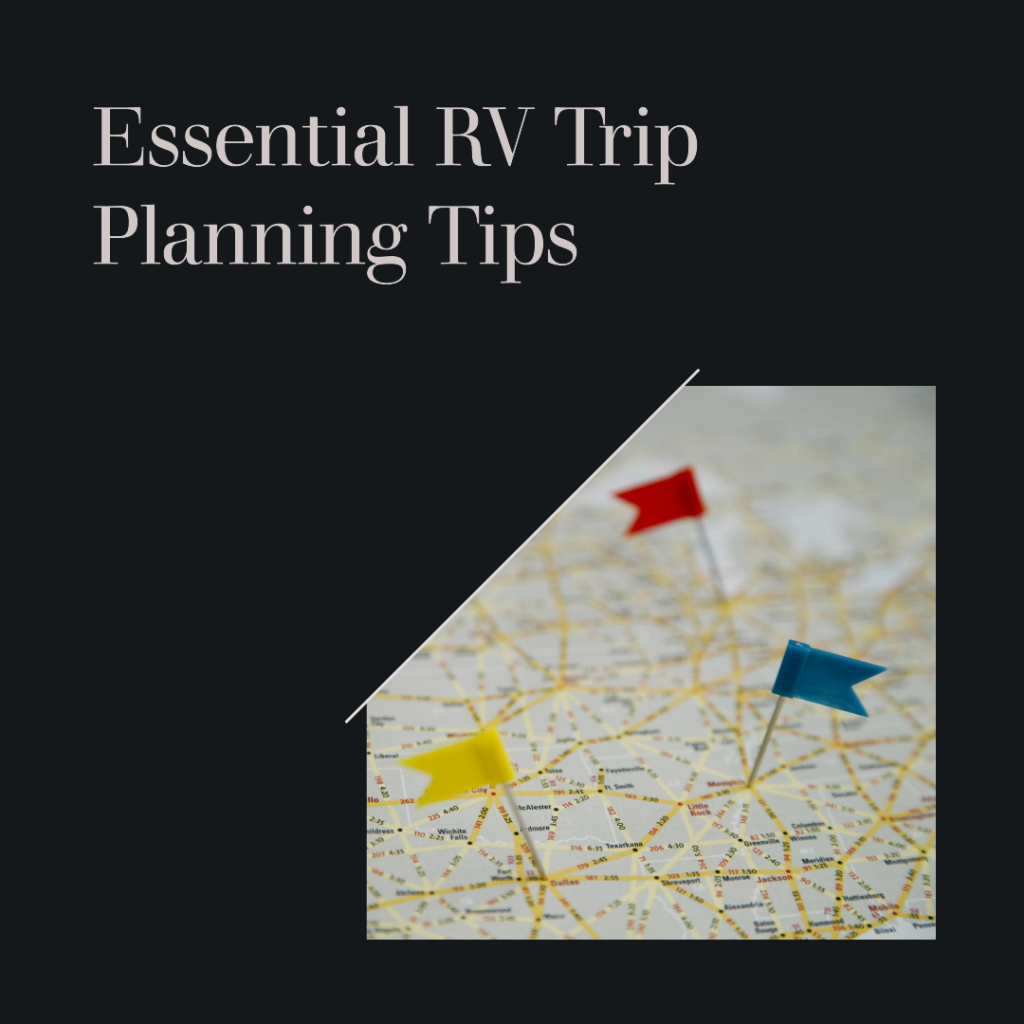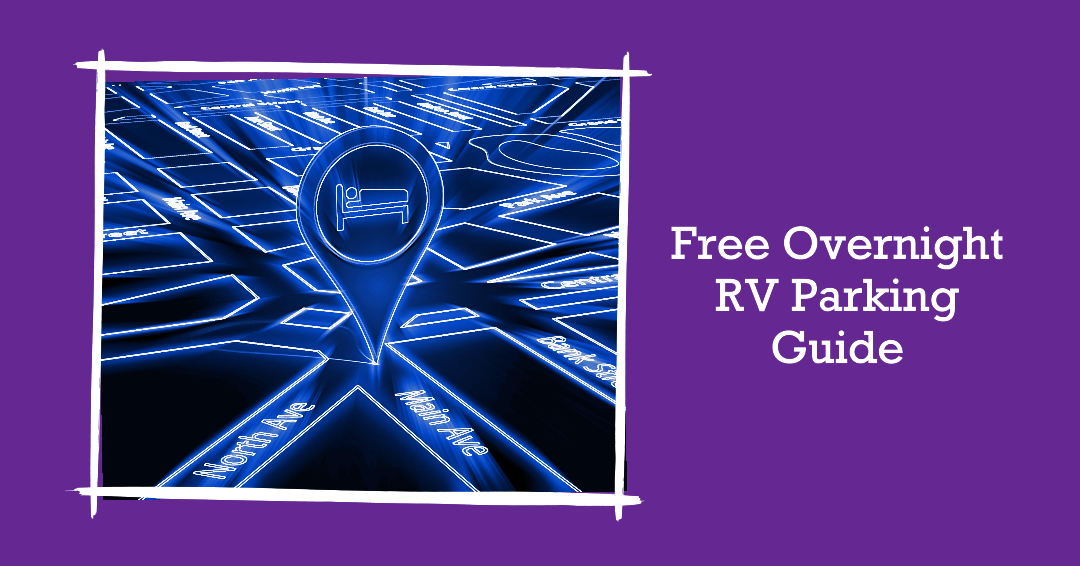Rules and Options
Dreaming of a road trip exploring America’s wonders from the comfort of your RV? Whether you’re a seasoned adventurer or a newbie hitting the open road for the first time, finding a safe and budget-friendly place to park your RV overnight can be a challenge. While staying at established RV parks offers amenities and a sense of community, it can also come with crowds and fees. This guide explores the option of overnight RV parking at rest areas, along with other free alternatives, to help you plan a cost-conscious and exciting road trip.
Where to Find Free Overnight RV Parking:
Planning your RV trip involves more than just picking a destination. To find the perfect free overnight spots, some research beforehand goes a long way. Here are some resources to get you started:
-
RV Apps and Websites: Download a few handy apps like RVParky, Allstays, or explore the Campendium website. These offer comprehensive listings of free overnight RV parking options across North America, including national forests, public lands, and even some parking lots. With search filters like “free,” you can easily find options that fit your budget.
-
Public Lands: U.S. Forest Service and Bureau of Land Management (BLM) lands are goldmines for free overnight RV parking. Managed for “multiple use,” these areas allow recreational activities like camping alongside their conservation efforts. Many BLM and Forest Service sites are also dog-friendly, making them perfect for those traveling with furry companions.
-
American Road Trip Guides: While digital resources are great, don’t underestimate the value of a good old-fashioned American road trip guide. These guides can provide valuable insights and recommendations for scenic routes, hidden gems, and free campsites that might not be listed online.
-
Beach Camping: Craving a coastal escape? Research “top spots for beach camping” online. Remember, some beach locations may have restrictions or permit requirements, so plan accordingly.

Before You Hit the Road
Embarking on an RV road trip can be an unforgettable adventure. But before you hit the gas, some key considerations can ensure a smooth and enjoyable journey. Here are some essential tips to keep in mind:
- Public Street Parking: Be aware that many cities and towns prohibit long-term parking of RVs on public streets. Even if you’re visiting a friend and plan to park in their driveway, check local ordinances to avoid any unwanted surprises.
- Off-Grid Camping: For those seeking a more remote experience, off-grid camping is an option on federal public lands. However, there are usually regulations regarding distance from established roads and specific restrictions in certain areas. Always check with local authorities or research online to understand the specific rules for each location you plan to visit.
- Campsite Availability: Popular RV parks and campsites can fill up quickly, especially during peak season. If you’re set on free camping, be prepared for fewer options and a lack of amenities like electrical hookups or water.
- Always Have a Backup Plan: No matter your chosen camping style, having a backup plan is crucial. Campgrounds can reach capacity, and unexpected situations can arise. Research alternative parking options in advance to avoid getting caught off guard.
- Respectful Camping: Responsible RV travel is essential. Never set up camp in unauthorized locations. Illegal camping can damage the environment, disrupt wildlife, and is subject to fines. These same principles apply to free, dispersed camping on public lands.
Beyond the Campground: Exploring Alternatives
RV parks offer a convenient and social option for travelers. However, for those seeking a more secluded experience, there are other Übernachtungsplätze (German for “overnight places”) to consider:
-
Embrace the Wild: Boondocking For adventurers who enjoy self-sufficiency, boondocking (dispersed camping without hookups) is a fantastic alternative. Escape the crowds and reconnect with nature under a blanket of stars. Be aware that boondocking often means sacrificing amenities like electricity and water.
-
Dispersed Camping for Serenity Public lands often offer designated dispersed camping areas, allowing you to set up camp outside of established campgrounds. This provides a more remote and peaceful experience while remaining budget-friendly.
-
Short-Term Savings: While RV parks can be convenient, especially for longer stays, sacrificing amenities for short-term overnight stops can lead to significant cost savings over a long trip. Explore alternative options like boondocking or dispersed camping for quick stays.
The Cost of Convenience: RV Park Fees
While RV parks offer a range of amenities and social interaction, they do come with a price tag. Here’s a breakdown of what to expect:
- Average Cost: According to Alyssa Padgett’s “A Beginner’s Guide to Living in an RV,” the average nightly rate for an RV park falls between $45 and $50. However, this price can fluctuate significantly.
- Factors Affecting Cost: Several factors influence the cost of an RV park stay, including:
- Season: Rates tend to be higher during peak travel seasons.
- Location: Popular destinations or areas with limited RV parking options typically have higher costs.
- RV Size: Larger RVs may incur additional fees.
- Amenities:** Parks with extensive amenities like swimming pools, laundry facilities, or on-site restaurants will be more expensive than basic parks with just electrical and water hookups.
- Hookups: Having access to electricity and water hookups will generally increase the nightly rate.
Examples:
- A basic RV park with only electrical and water hookups might cost around $30 per night.
- A resort-style RV park with a full range of amenities could cost upwards of $100 per night.
Finding the Right Balance:
Consider your priorities when choosing an RV park. If amenities and social interaction are important, a higher-priced park might be worth it. For budget-conscious travelers or those seeking a more basic experience, a no-frills park with just the essentials may suffice

Unique Overnight RV Stays and Safe Haven Options
Beyond traditional campgrounds, several unique and budget-friendly options exist for RV travelers seeking adventure:
- HipCamp: Consider HipCamp, an “Airbnb for campers,” offering stays on private properties like ranches, farms, vineyards, or even beaches (for a fee).
- Harvest Hosts: For a yearly membership fee (around $100), Harvest Hosts grants access to over 1,500 RV-friendly locations including breweries, wineries, and museums.
Finding Your Perfect Stop:
No matter your chosen accommodation style, reliable apps can help plan your trip and locate nearby services. Check out “https://morethanjustparks.com/road-trip-planning-tools/” for top-rated free road trip planning apps.
Safe Overnight Parking Options:
While some full-time RVers rely on store parking lots like Walmart or Cracker Barrel, it’s crucial to manage expectations. While Walmart generally allows overnight RV parking, always call the store manager to confirm. Consult this regularly updated list to avoid locations with restrictions: “https://www.walmartlocator.com/rv-parking-at-walmart/“. Large shopping centers are typically patrolled and off-limits for overnight stays.
Alternatives for Safe Sleep:
Rest areas, truck stops, and casinos offer well-lit areas with 24-hour restrooms, making them potential overnight options. However, casinos may attract unwanted attention. Outdoor stores like Bass Pro, Cabela’s, and Camping World often allow overnight parking, but always confirm with the manager beforehand.
Understanding Time Limits:
The permitted duration of free RV stays varies by location. BLM land generally allows up to 30 days of free camping, though specific locations may have shorter limits. National forests typically permit dispersed camping for 14 days, with some areas allowing shorter or longer stays. Always check local regulations at ranger stations or by calling ahead.

Tread Lightly: Essential RV Camping Etiquette
Minimizing your impact and respecting the environment are paramount for all RV campers. Here are some key principles to adopt:
-
Plan Ahead and Pack Out: Thorough planning is key. Research campsites, have backup options, and bring all necessary supplies to avoid creating waste. Always follow “Leave No Trace” principles by packing out all trash and food scraps.
-
Respectful Waste Disposal: RV parks typically offer waste disposal options, but dispersed camping requires you to pack out all waste, including human waste. Bury human waste in a designated location far from water sources.
-
Leave the Landscape Unscathed: Vehicles can cause significant damage. Use established access roads and designated campsites to avoid harming vegetation or wildlife habitats. Never cut down trees or stray outside designated camping areas.
-
Minimize Your Campfire Impact: Only have campfires in designated fire rings. Use existing rings whenever possible to avoid creating new ones. Purchase firewood locally or gather it from the area if permitted, to prevent the spread of invasive species. Always extinguish fires completely before leaving, and dispose of any leftover food scraps responsibly.
The Open Road Awaits: Explore Responsibly with Your RV
RV travel offers a unique blend of adventure and flexibility, allowing you to explore the country at your own pace. Whether you’re seeking the serenity of secluded campsites or the camaraderie of RV parks, with a little planning and these helpful tips, you can embark on a memorable journey while leaving a minimal footprint. So, pack your bags, fuel up your RV, and get ready to experience America’s wonders from the comfort of your home on wheels. Remember, responsible RV travel is about respecting the environment, fellow travelers, and the local communities you visit. By following these guidelines and embracing the spirit of adventure, you can create lasting memories and ensure that these natural treasures are preserved for future generations.
Happy trails!
Resources
- U.S. Forest Service website – The U.S. Forest Service manages lands that allow for recreational activity and free overnight parking for RVs: https://www.fs.fed.us/
- Bureau of Land Management website – The Bureau of Land Management (BLM) manages public lands that allow for dispersed camping and free overnight parking for RVs: https://www.blm.gov/
- RVParky website – RVParky is a website and app that provides an exhaustive list of overnight RV parking and camping options across the United States and Canada, including free options. This website can help you find campgrounds and RV parks that fit your needs and budget: https://www.rvparky.com/
- Allstays website – Allstays is another website that provides an extensive database of RV parks and campgrounds, as well as free camping options such as rest stops and parking lots: https://www.allstays.com/
- Leave No Trace Center for Outdoor Ethics website – This organization promotes responsible outdoor recreation and provides information on how to minimize your impact on the environment while camping. Their website provides tips and resources for camping ethically and sustainably: https://lnt.org/
FAQs
Q: Is overnight RV parking allowed at rest areas?
A: Yes, overnight RV parking is allowed at many rest areas, but there may be restrictions or limitations in some states. It’s important to check the regulations for each state or rest area before parking overnight.
Q: Are there any restrictions or regulations for overnight RV parking at truck stops?
A: There may be restrictions or regulations for overnight RV parking at truck stops, and it’s important to check with the specific truck stop before parking overnight. Some truck stops may have designated areas for RV parking, while others may not allow overnight parking at all.
Q: Are there any fees associated with overnight RV parking at campgrounds?
A: Yes, there are usually fees associated with overnight RV parking at campgrounds. The fees can vary depending on the campground and the amenities offered, and it’s important to check with each campground for their specific fee structure.
Q: Is it safe to park an RV overnight at a Walmart parking lot?
A: While many Walmart stores allow overnight RV parking, it’s important to check with each store before parking overnight. Additionally, it’s important to take safety precautions when parking overnight in any location, including locking doors and windows and being aware of your surroundings.
Q: Are there any limitations on the length of stay for overnight RV parking at rest areas, truck stops, or other locations?
A: Yes, there may be limitations on the length of stay for overnight RV parking at rest areas, truck stops, or other locations. The limitations can vary depending on the location and the regulations in that area, and it’s important to check with each location for their specific limitations.
Q: What amenities are available for overnight RV parking at different locations?
A: The amenities available for overnight RV parking can vary depending on the location. Some locations may offer amenities such as electricity and water hookups, dump stations, and restroom facilities, while others may offer no amenities at all. It’s important to check with each location for their specific amenities.
Q: Are there any apps or resources available to help find safe and legal overnight RV parking options?
A: Yes, there are several apps and resources available to help find safe and legal overnight RV parking options. Some popular options include AllStays, RV Parky, and Campendium.
Q: What are the best practices for overnight RV parking to ensure safety and compliance with regulations?
A: Some best practices for overnight RV parking include researching and following the regulations for each location, being aware of your surroundings, locking doors and windows, and avoiding parking in areas that may be unsafe.
Q: Can I park my RV overnight on the street in residential areas?
A: The regulations for parking an RV overnight on the street in residential areas can vary depending on the location. Some areas may have restrictions or prohibit overnight parking of RVs on the street, while others may allow it. It’s important to check with the local authorities for the regulations in your specific area.
Q: What are the penalties for parking an RV overnight in prohibited areas?
A: The penalties for parking an RV overnight in prohibited areas can vary depending on the location and the regulations in that area. Penalties can range from fines to towing and impounding of the RV. It’s important to check with the local authorities for the specific penalties in your area.

